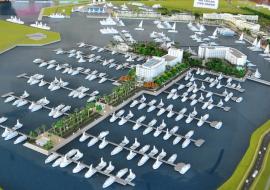Asia Pacific Main Destination for Tourists by 2010, UNWTO Says
About 800 delegates from 55 countries, including tourism ministers from about 20 countries, were told last week, according to United Nations World Tourism Organization (UNWTO) estimates, the majority of the one billion tourist arrivals expected by 2010 will be heading to the Asia Pacific region.
The delegates are in Kuala Lumpur for the three-day World Tourism Conference in the presence of Francesco Frangialli, secretary general of the UNWTO.
UNWTO said it believes that sharing the experiences of successful destinations and organizations will help to increase total world tourism to the advantage of all, said UNWTO in a statement. “It will also help spread the benefits of tourism to less developed countries, and alleviate poverty, which is one of the organization’s principal goals.”
Tourism has become one of the most important global industries today due to the ease of travel and fluidity of movement across borders.
According to UNWTO figures, the cumulative number of global tourist arrivals has risen to 842 million by 2006, which translates to an average growth rate of about 7 percent per annum over the past five decades.
High profile destinations from the Southeast Asian region have been drawing millions of tourists across the continents for decades.
The success of ASEAN member countries, namely Thailand, Malaysia, Indonesia and Singapore, has become a model for the successful promotion and marketing of tourism products and management. “Its Visit ASEAN Year campaign is a model for marketing of regional tourism.”
The industry has continued to grow and develop despite its vulnerability to crises and calamities, both natural and manmade.
The world has witnessed some of the worst disasters and life-altering events in recent history, including the outbreak of SARS, Avian Influenza, the Asian tsunami attacks, war in Afghanistan and Iraq, September 11, Bali bombings, Madrid train bombings and the recent London bombings.
Many governments see tourism as a catalyst of growth, bringing in substantial revenues and stimulating investments in infrastructure, which ultimately contributes to overall improved living conditions for the people of those countries, said Malaysian Deputy Prime Minister Najib Razak.














